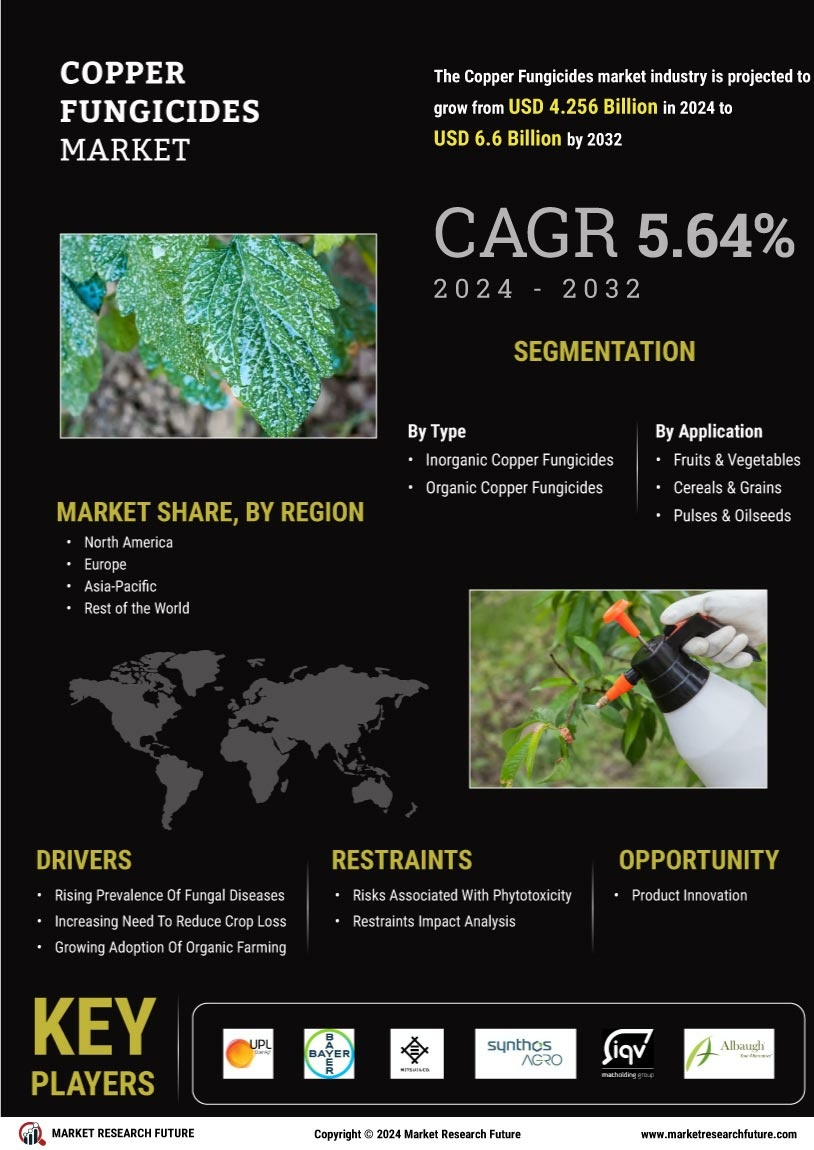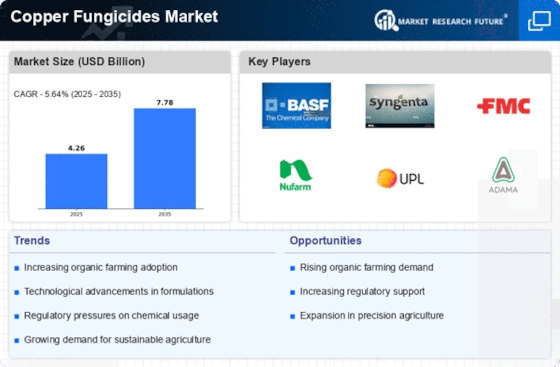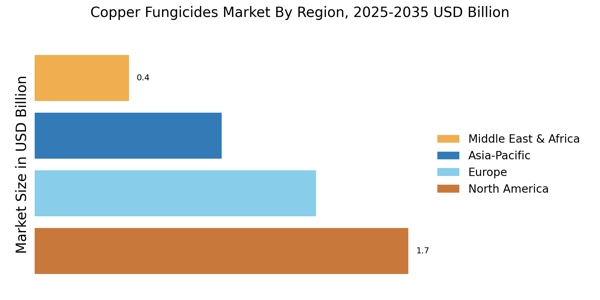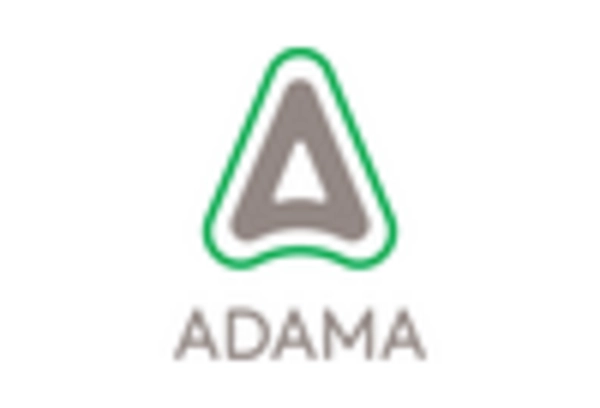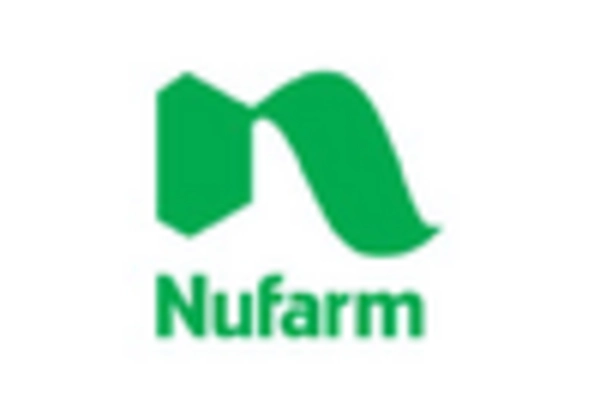Global Food Security Initiatives
The Copper Fungicides Industry. As the world faces challenges related to food production and supply, there is a concerted effort to enhance agricultural productivity. Copper fungicides play a crucial role in this context, as they help protect crops from diseases that can significantly reduce yields. Initiatives aimed at improving food security often emphasize sustainable agricultural practices, which include the use of copper fungicides as part of integrated pest management strategies. The market for copper fungicides is expected to benefit from these initiatives, as they align with the goals of increasing food production while minimizing environmental impact. As governments and organizations invest in agricultural innovation and sustainability, the demand for effective crop protection solutions like copper fungicides is likely to rise, contributing to the overall growth of the market.
Increasing Demand for Organic Produce
The rising consumer preference for organic produce is a notable driver in the Copper Fungicides Market. As consumers become more health-conscious, the demand for organic fruits and vegetables has surged. This trend compels farmers to adopt organic farming practices, which often necessitate the use of copper fungicides as a means to manage fungal diseases without resorting to synthetic chemicals. According to recent data, the organic food market has been expanding at a compound annual growth rate of over 10%, indicating a robust market for organic farming inputs, including copper fungicides. This shift towards organic agriculture not only supports sustainable farming practices but also enhances the market potential for copper fungicides, as they are perceived as safer alternatives in pest management.
Rising Awareness of Plant Health Management
The increasing awareness of plant health management among farmers is a significant driver in the Copper Fungicides Market. As agricultural practices evolve, there is a growing recognition of the importance of maintaining plant health to ensure optimal crop yields. Farmers are becoming more educated about the role of copper fungicides in preventing and managing fungal diseases, which can devastate crops if left unchecked. This awareness is leading to a more proactive approach to crop protection, with farmers actively seeking effective solutions like copper fungicides. Market data suggests that the demand for fungicides is projected to grow steadily, driven by this heightened awareness. As farmers prioritize plant health management, the copper fungicides market is likely to expand, reflecting the shift towards more integrated and sustainable agricultural practices.
Technological Innovations in Crop Protection
Technological advancements in crop protection are reshaping the Copper Fungicides Market. Innovations in formulation and application techniques have led to more effective and efficient use of copper fungicides. For example, the development of nano-formulations allows for better absorption and targeted delivery, reducing the quantity needed for effective disease control. This not only enhances the efficacy of copper fungicides but also minimizes environmental impact. Furthermore, precision agriculture technologies enable farmers to apply fungicides more accurately, optimizing their usage and reducing waste. As these technologies continue to evolve, they are likely to drive growth in the copper fungicides market, as farmers seek to maximize yield while adhering to sustainable practices. The integration of technology in agriculture is expected to create new opportunities for copper fungicides, making them a vital component of modern crop management.
Regulatory Support for Eco-Friendly Solutions
Regulatory frameworks increasingly favor eco-friendly agricultural solutions, which significantly impacts the Copper Fungicides Market. Governments and agricultural bodies are implementing policies that promote the use of biopesticides and organic fungicides, including copper-based products. This regulatory support is crucial as it encourages farmers to transition from conventional chemical fungicides to more sustainable options. For instance, certain regions have established guidelines that limit the use of harmful chemicals, thereby creating a favorable environment for copper fungicides. The market is likely to benefit from these regulations, as they not only enhance the credibility of copper fungicides but also align with the global push towards sustainable agriculture. As a result, the market for copper fungicides is expected to grow, driven by both consumer demand and regulatory incentives.
